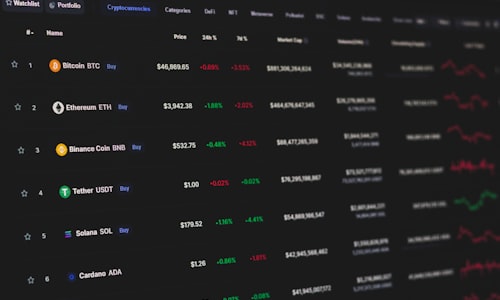The word “blockchain” has been all the rage in a number of sectors lately, with promises of dramatic shifts in the way we manage data, transactions, and trust. However, blockchain technology is still largely unknown to the public, with technical jargon and intricate nuances sometimes masking its full promise. We’ll take a trip to demystify blockchain in this blog post by going over its foundations and considering all of its possible uses in a variety of industries.
Understanding Blockchain Technology
At its core, blockchain is a decentralized, distributed ledger technology that records transactions across a network of computers. These transactions are grouped into blocks, which are cryptographically linked to form a continuous chain, hence the name “blockchain.” Let’s break down some key components:
- Decentralization: Unlike traditional centralized systems where a single authority controls the data, blockchain operates on a decentralized network, where every participant (or node) has a copy of the entire ledger. This ensures transparency, security, and immutability of data.
- Cryptographic Security: Each block in the blockchain is encrypted and contains a unique cryptographic hash of the previous block, creating a secure chain that makes it extremely difficult for anyone to alter past transactions without consensus from the network.
- Consensus Mechanisms: Blockchain networks rely on consensus algorithms to validate and agree on the state of the ledger. Popular mechanisms include Proof of Work (PoW), Proof of Stake (PoS), and variations thereof, each with its own advantages and trade-offs.
Potential Uses of Blockchain Technology
Now that we have a basic understanding of how blockchain works, let’s explore its potential applications across various industries:
- Financial Services: The most well-known application of blockchain is in finance, particularly with cryptocurrencies like Bitcoin and Ethereum. Blockchain enables fast, secure, and transparent peer-to-peer transactions without the need for intermediaries like banks or payment processors.
- Supply Chain Management: Blockchain can revolutionize supply chain management by providing end-to-end visibility and traceability of products. From raw material sourcing to manufacturing, distribution, and retail, blockchain ensures authenticity, reduces counterfeiting, and enhances efficiency.
- Healthcare: In healthcare, blockchain can securely store and manage patient records, ensuring data integrity, interoperability, and privacy. Patients can have control over their medical data, granting access to healthcare providers as needed while maintaining confidentiality.
- Identity Management: Blockchain-based identity management systems offer a solution to the problem of identity theft and fraud. By providing individuals with self-sovereign identities, blockchain enables secure and portable digital identities that can be verified without relying on centralized authorities.
- Real Estate: Blockchain has the potential to streamline real estate transactions by digitizing property titles, automating contract execution, and enabling fractional ownership through tokenization. This reduces paperwork, minimizes fraud, and increases accessibility to real estate investments.
- Voting Systems: Blockchain-based voting systems can enhance the integrity and transparency of elections by providing a tamper-proof record of votes. This ensures that every vote is counted accurately while maintaining voter anonymity and preventing manipulation.
- Intellectual Property: Blockchain can revolutionize the management of intellectual property rights by timestamping and securely storing digital assets such as patents, copyrights, and trademarks. This reduces disputes, facilitates licensing, and ensures fair compensation for creators.
Conclusion
Blockchain technology holds immense promise across various industries, offering solutions to age-old problems of trust, transparency, and efficiency. By leveraging decentralization, cryptography, and consensus mechanisms, blockchain has the potential to transform the way we exchange value, manage data, and interact with digital systems. As we continue to explore and innovate with blockchain technology, it’s crucial to balance its disruptive potential with ethical considerations and regulatory frameworks to ensure its responsible and sustainable integration into society.


